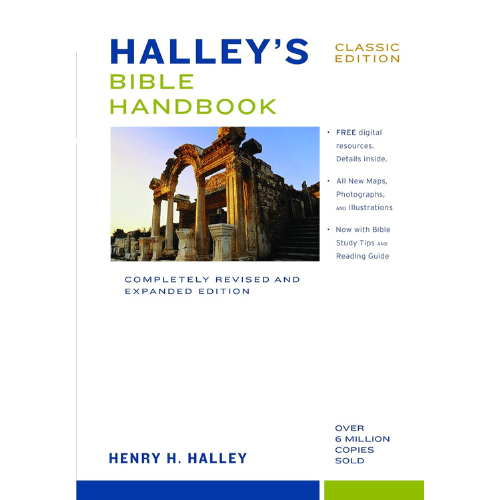- Book of Deuteronomy – Writer
- Book of Deuteronomy – Date Written
- Book of Deuteronomy – To Whom Written
- Book of Deuteronomy – Purpose
- Book of Deuteronomy – Historical Context
- Book of Deuteronomy – Key Themes
- Book of Deuteronomy – Major Events/Stories
- Book of Deuteronomy – Theological Contributions
- Book of Deuteronomy – Structure and Outline
- Book of Deuteronomy – Special Consideration
- Book of Deuteronomy – Conclusion
- Frequently Asked Questions (FAQ) on the Book of Deuteronomy
In the Book of Deuteronomy, we’re not just flipping through another book of the Bible; we’re stepping into a pivotal moment in Israel’s history. Deuteronomy is like a bridge, connecting the incredible journey of the Israelites, from slavery in Egypt to standing on the edge of the Promised Land. It’s the final book of what we call the Pentateuch—the first five books of the Bible that lay the foundation for everything that follows.
In Deuteronomy, we find Moses, now an old man, delivering his final messages to the people of Israel. It’s here that he reminds them of everything God has done, reiterates His laws, and urges them to remain faithful as they prepare to enter a new chapter of their story. This book isn’t just a recap; it’s a powerful call to covenant faithfulness—a reminder that God’s commands are not just rules but life-giving words that shape our relationship with Him.
So, why does Deuteronomy matter so much? Well, it’s a cornerstone of the Old Testament, shaping the identity and faith of God’s people. It also sets the stage for the rest of the Bible, influencing the Prophets, the Psalms, and even the teachings of Jesus. Understanding Deuteronomy helps us grasp the heart of God’s covenant with His people—a covenant that echoes throughout Scripture.
Book of Deuteronomy – Writer
The traditional view holds that Moses is the primary author of the Book of Deuteronomy. This perspective is supported by the text itself, as Deuteronomy frequently refers to Moses speaking directly to the Israelites, delivering God’s laws and recounting their history. For centuries, Jewish and Christian traditions have upheld Moses’ authorship, viewing Deuteronomy as his final words to the people before his death.
However, some scholars suggest that there may have been later editorial contributions, particularly because Deuteronomy includes details about Moses’ death in the final chapter (Deut. 34). These additions, they argue, could have been made by a later scribe or editor to complete the narrative. Despite these debates, strong evidence supports Mosaic authorship. The book’s consistent style and language, its intimate knowledge of the events and geography of the Exodus, and the emphasis on covenantal themes align closely with what we know about Moses’ role as a leader and prophet.
Ultimately, while there may be some minor later additions, the Book of Deuteronomy is overwhelmingly attributed to Moses, serving as a testament to his leadership and the covenant between God and Israel.
Book of Deuteronomy – Date Written
The Book of Deuteronomy is traditionally dated to around 1406 B.C., just before the Israelites entered the Promised Land. This date places Deuteronomy at the end of the 40-year wilderness journey, a critical moment in Israel’s history. The Israelites, having wandered in the desert due to their disobedience, were now poised to cross the Jordan River and claim the land God had promised to their ancestors.
Moses, nearing the end of his life, delivered a series of speeches recorded in Deuteronomy, reiterating God’s laws and reminding the people of their covenant with Him. This timing is significant because it marks a transition from the leadership of Moses to Joshua and from a nomadic existence to settling in Canaan. The Book of Deuteronomy served as a reminder of God’s faithfulness and a guide for living in the land they were about to inherit.
The date of around 1406 B.C. aligns with other biblical events, such as the Exodus and the conquest of Canaan, creating a coherent timeline that reflects the Israelites’ journey from slavery in Egypt to becoming a nation under God’s covenant. This moment of renewal and re-commitment is what Deuteronomy captures so powerfully.
Book of Deuteronomy – To Whom Written
The Book of Deuteronomy was primarily addressed to the second generation of Israelites, those who were born after the Exodus from Egypt. Their parents had witnessed God’s mighty acts of deliverance but had failed to fully trust and obey Him, resulting in their wandering in the wilderness for 40 years. This new generation, however, was on the brink of a significant transition—they were preparing to enter the Promised Land, Canaan.
Moses, knowing he would not accompany them, spoke directly to this generation, reiterating the laws and commandments given at Mount Sinai. The Book of Deuteronomy served as a renewal of the covenant between God and Israel, emphasizing the importance of obedience, faithfulness, and love for God as they prepared to settle in a land filled with new challenges and temptations.
While the immediate audience was the second generation of Israelites, the intended audience encompassed all of Israel, both present and future. The teachings in Deuteronomy were meant to guide the nation for generations, reminding them of their identity as God’s chosen people and the responsibilities that came with it. This enduring message makes Deuteronomy relevant not only to its original audience but to all who seek to understand God’s covenant relationship with His people.
Error, group does not exist! Check your syntax! (ID: 02)Book of Deuteronomy – Purpose
The Book of Deuteronomy serves a crucial purpose in the biblical narrative: it reinforces the covenant between God and Israel, reminding the people of their unique relationship with Him. As the Israelites prepared to enter the Promised Land, Moses reiterated God’s laws and commandments, emphasizing their importance for maintaining the covenant.
Deuteronomy acts as a renewal of this covenant, stressing that obedience to God’s laws is not just a legal requirement but a path to blessing and life. It reminds the Israelites of God’s faithfulness in bringing them out of Egypt and sustaining them in the wilderness. By revisiting the laws given at Sinai, Moses ensured that the new generation, who would soon be settling in Canaan, understood the terms of their covenant with God and the consequences of obedience or disobedience.
Furthermore, the Book of Deuteronomy was meant to prepare the Israelites for life in the Promised Land. It provided guidance on how to live as a holy nation among other peoples, maintaining their distinct identity and faithfulness to God. Through Deuteronomy, the Israelites were equipped not only to conquer the land but to thrive in it as God’s covenant people.
Book of Deuteronomy – Historical Context
The Book of Deuteronomy is set against the backdrop of the Israelites’ 40-year journey in the wilderness. This journey began with the Exodus from Egypt, where God delivered His people from slavery, and it was marked by trials, tests of faith, and moments of both obedience and rebellion. The 40 years in the desert were a period of preparation and purification, as the first generation of Israelites who had doubted God’s promises were not permitted to enter the Promised Land.
As this period drew to a close, the leadership of Israel was transitioning from Moses to Joshua. Moses, who had led the people through the wilderness and delivered God’s laws, was nearing the end of his life. He would not enter Canaan but was tasked with ensuring that the new generation was ready to fulfill God’s plan.
The Book of Deuteronomy captures this critical moment as the Israelites stood on the brink of conquering and settling in Canaan. It reflects their anticipation and the need to be reminded of God’s covenant and laws before entering a land filled with new challenges. Deuteronomy served to solidify their identity and commitment to God as they prepared for the next chapter of their journey.
Book of Deuteronomy – Key Themes
The Book of Deuteronomy is rich with key themes that shape the spiritual and moral framework of Israel. Central to the book is the theme of covenant renewal and faithfulness to God. As the Israelites prepared to enter the Promised Land, Moses called them to reaffirm their commitment to the covenant established at Sinai. This renewal emphasized that Israel’s relationship with God was not just a historical event but an ongoing, living commitment requiring their continual faithfulness.
Obedience to God’s commandments is another crucial theme in Deuteronomy. The book reiterates the laws given earlier in the Pentateuch, stressing that obedience is not just about following rules but about maintaining a relationship with God. The Israelites were reminded that their prosperity and success in the land depended on their adherence to these commandments.
Deuteronomy also underscores the blessings of obedience and the consequences of disobedience. It clearly outlines the rewards for following God’s laws, including protection, prosperity, and peace, contrasted with the severe consequences of turning away from Him, such as defeat, exile, and suffering.
Another vital theme is God’s love and His choice of Israel as His people. Deuteronomy highlights that Israel’s election is based not on their merits but on God’s love and promise to their ancestors. This theme reinforces the idea that Israel’s identity is rooted in God’s grace and calling.
Finally, the centrality of the Law in Israel’s identity is a recurring theme in Deuteronomy. The Law is presented as the foundation of Israel’s life, shaping their society, worship, and relationship with God. The Book of Deuteronomy thus serves as a profound reminder of the importance of living according to God’s word, ensuring that His commandments remain at the heart of Israel’s identity and mission.
Book of Deuteronomy – Major Events/Stories
The Book of Deuteronomy is structured around several major events and stories that are pivotal in preparing the Israelites for life in the Promised Land.
One of the key events is Moses’ farewell speeches. As Moses nears the end of his life, he delivers a series of speeches to the Israelites, offering guidance, warnings, and encouragement. These speeches are Moses’ final opportunity to remind the people of their covenant with God and to urge them to remain faithful as they prepare to enter Canaan without him.
Another significant aspect of Deuteronomy is the recounting of Israel’s history and God’s faithfulness. Moses retells the journey of the Israelites from Egypt through the wilderness, highlighting God’s consistent provision and care. This retelling serves as a reminder of how God has been faithful to His promises, reinforcing the need for Israel to trust Him in the future.
The reiteration of the Ten Commandments is also a crucial moment in the book. Moses repeats these foundational laws to ensure that the new generation understands their importance and the role they play in maintaining the covenant with God.
In addition, Moses gives instructions for entering and possessing the land. These include practical guidelines for conquest, as well as spiritual directives on how to live in a way that honors God in the new land.
Finally, the blessing and cursing ceremony on Mount Ebal and Mount Gerizim stands out as a powerful symbolic event. This ceremony involved the public proclamation of blessings for obedience and curses for disobedience, emphasizing the consequences of Israel’s choices and reinforcing the central message of the Book of Deuteronomy: faithfulness to God is the key to life and blessing in the Promised Land.
Halley’s Bible Handbook, Classic Edition
The bestselling Bible handbook of all time with millions of copies sold, the Halley’s Bible Handbook makes the Bible’s wisdom and message accessible to everyone.
Book of Deuteronomy – Theological Contributions
The Book of Deuteronomy offers profound theological contributions and insights that have shaped both Jewish and Christian thought.
One of the most significant contributions is the clear articulation of monotheism in Deuteronomy 6:4: “The LORD our God, the LORD is one.” This verse, known as the Shema, is a central confession of faith in Judaism, emphasizing the unique and singular nature of God. It calls the Israelites to exclusive loyalty and love for God, laying the foundation for the understanding of God as the one true deity, distinct from the polytheistic beliefs of surrounding nations.
The Shema itself is not just a declaration of monotheism but also a call to love God with all one’s heart, soul, and strength. It encapsulates the essence of Israel’s faith and serves as a daily reminder of their covenant relationship with God. This confession has become a cornerstone of Jewish prayer and identity, and its influence extends into Christian theology as well.
Another critical theological contribution of Deuteronomy is its emphasis on the role of the Law in guiding Israel’s moral and religious life. The Law is presented not merely as a set of rules but as a divine gift that structures the community’s life and reflects God’s character. Obedience to the Law is portrayed as the way to live in harmony with God and with one another, ensuring justice, righteousness, and blessing in the land.
The Book of Deuteronomy also highlights God’s sovereignty and the importance of covenant loyalty. Throughout the book, God’s control over history and His authority over Israel are affirmed. The covenant is portrayed as a binding agreement that requires Israel’s total allegiance to God. Deuteronomy repeatedly stresses that blessings come from obedience, while disobedience brings curses, underscoring the serious nature of covenant faithfulness.
Finally, Deuteronomy includes a prophetic foreshadowing of a future prophet like Moses (Deut 18:15-18). This promise points to the coming of a leader who would speak God’s words with authority, guiding the people in righteousness. Christians see this as a foreshadowing of Jesus Christ, who is viewed as the ultimate fulfillment of this prophecy.
In these ways, the Book of Deuteronomy provides rich theological insights that continue to influence faith communities, emphasizing the uniqueness of God, the centrality of the Law, and the importance of covenant loyalty.
Book of Deuteronomy – Structure and Outline
The Book of Deuteronomy is structured as a series of speeches delivered by Moses to the Israelites as they stand on the threshold of the Promised Land. This structure helps convey the urgency and importance of Moses’ final instructions.
Introduction and First Speech (Chapters 1-4)
The book begins with an introduction and Moses’ first speech, which provides a historical overview of Israel’s journey from Mount Sinai to the edge of Canaan. Moses recounts the key events of their 40-year journey in the wilderness, emphasizing God’s faithfulness and the lessons learned along the way. This speech sets the stage for the renewal of the covenant, reminding the Israelites of their past and preparing them for what lies ahead.
Second Speech: The Law Revisited (Chapters 5-26)
Moses’ second speech is the heart of Deuteronomy, where he revisits and expands upon the laws given earlier in the Pentateuch. This section begins with the reiteration of the Ten Commandments (Chapter 5), which serve as the foundation of Israel’s covenant with God. Following this, Moses presents various laws and statutes (Chapters 6-26) that cover a wide range of topics, including worship, social justice, family life, and community order. These laws are intended to guide the Israelites in living faithfully as God’s chosen people in the Promised Land.
Third Speech: Blessings, Curses, and Covenant Renewal (Chapters 27-30)
In his third speech, Moses focuses on the consequences of obeying or disobeying God’s commandments. He outlines the blessings for obedience and the curses for disobedience, making it clear that the future of Israel depends on their loyalty to the covenant. This section culminates in a powerful call to choose life by loving and obeying God, reinforcing the idea that their choices will determine their destiny in the land.
Conclusion: Moses’ Final Words and Death (Chapters 31-34)
The conclusion of the Book of Deuteronomy includes Moses’ final actions and words. He commissions Joshua as his successor, ensuring that the leadership transition is smooth and divinely sanctioned. Moses then delivers a song and a blessing to the tribes of Israel, encapsulating his final messages of encouragement and warning. The book ends with an account of Moses’ death and legacy, highlighting his unique role as God’s servant and the impact of his leadership on Israel’s history.
This structure of the Book of Deuteronomy effectively conveys the seriousness of the covenant, the importance of the Law, and the weight of the decisions facing the Israelites as they prepare to enter the Promised Land.
Book of Deuteronomy – Special Consideration
The Book of Deuteronomy holds a special place in both Jewish and Christian traditions, exerting a profound influence on later biblical writings and shaping key aspects of ethics and theology.
One of the most significant special considerations is Deuteronomy’s influence on later biblical writings, particularly in the Prophets and the New Testament. The Prophets frequently draw on Deuteronomy’s themes of covenant faithfulness, obedience, and social justice, using it as a basis for their calls to repentance and their warnings of impending judgment. In the New Testament, Jesus often quotes Deuteronomy, especially during His temptation in the wilderness (e.g., Matthew 4:1-11), and the book’s emphasis on loving God and neighbor becomes central to His teachings. The Apostle Paul also references Deuteronomy to explain key theological points, such as in Romans 10:6-8.
The Book of Deuteronomy also plays a crucial role in shaping Jewish and Christian ethics and theology. Its detailed laws and commandments provide a moral framework that has guided Jewish life for centuries, influencing practices related to worship, justice, and social responsibility. For Christians, Deuteronomy’s call to love God with all one’s heart, soul, and strength (Deut. 6:5) resonates deeply, forming the foundation for ethical teachings in the New Testament.
Moreover, Deuteronomy is a foundational text in the development of the concept of “scripture.” It is one of the earliest books to be written and regarded as divinely inspired, and its repeated emphasis on teaching, remembering, and passing down God’s laws underscores its role as authoritative scripture. This concept of a written, sacred text that guides the community of faith becomes central to both Jewish and Christian traditions.
In these ways, the Book of Deuteronomy is not just a historical document but a living text that continues to influence religious thought and practice across generations.
Book of Deuteronomy – Conclusion
The Book of Deuteronomy stands as a cornerstone of biblical literature, its teachings and principles echoing through the ages. This book not only captures the final words of Moses but also encapsulates the essence of Israel’s covenant relationship with God. Deuteronomy’s enduring significance lies in its powerful call to obedience, love, and faithfulness—a call that has shaped the spiritual journey of countless generations.
In our contemporary faith, the teachings of Deuteronomy remain profoundly relevant. The emphasis on loving God wholeheartedly, living justly, and upholding the covenant resonates with the challenges and opportunities we face today. As we navigate our own spiritual journeys, Deuteronomy reminds us that our relationship with God is built on a foundation of trust, commitment, and obedience.
Living out the principles found in the Book of Deuteronomy involves more than following rules; it calls us to a life of integrity, compassion, and deep connection with God. By embracing these teachings, we can experience the blessings of a faithful relationship with the Lord and contribute to a community that reflects His love and justice. Let us, like the Israelites, choose life by living according to the wisdom and guidance that Deuteronomy offers.
Frequently Asked Questions (FAQ) on the Book of Deuteronomy
1. What is the main purpose of the Book of Deuteronomy? The main purpose of the Book of Deuteronomy is to renew the covenant between God and the Israelites. It serves as a reminder of God’s laws and commandments, guiding the Israelites as they prepare to enter the Promised Land. Moses’ speeches in Deuteronomy emphasize the importance of obedience, faithfulness, and love for God.
2. Who wrote the Book of Deuteronomy? Traditionally, Moses is considered the primary author of the Book of Deuteronomy. The book records his final speeches to the Israelites before his death. While there is some debate about possible later editorial contributions, especially in the account of Moses’ death, the overwhelming consensus attributes the bulk of the text to Moses.
3. How is the Book of Deuteronomy structured? The Book of Deuteronomy is structured around three main speeches by Moses. The first recounts Israel’s history, the second revisits the laws and commandments, and the third outlines the blessings for obedience and curses for disobedience. The book concludes with Moses’ final words, his commissioning of Joshua, and the account of his death.
4. Why is Deuteronomy significant in both Jewish and Christian traditions? Deuteronomy is significant because it provides a foundational understanding of the covenant between God and His people, emphasizing the importance of obedience and faithfulness. It is frequently quoted in both Jewish and Christian scriptures, including by Jesus and the Apostle Paul, making it a cornerstone of ethical and theological teachings in both faiths.
5. What are some key themes in the Book of Deuteronomy? Key themes in the Book of Deuteronomy include covenant renewal and faithfulness to God, the role of the Law in guiding Israel’s moral and religious life, the blessings of obedience and the consequences of disobedience, God’s love and choice of Israel as His people, and the concept of monotheism as expressed in the Shema (Deut. 6:4).




